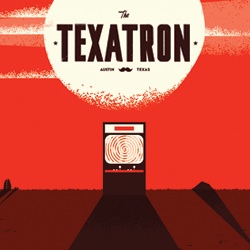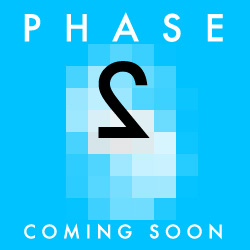How do you follow the blog-hype over your own Noby Noby Boy and Grim Fandango custom painted shoes? With two pairs of Zelda shoes, one pair based on each particular shield from Wind Waker and Twilight Princess.
Creator Nicholas ‘KyozoKicks‘ Tonks has gone a step further this time and is taking orders for either pair for any interested party: £125, available worldwide.
The Zelda Collection. [Kyozo Kicks]
The day’s most awesomely cranky (and unfortunately several months silent) monomaniacally focused website: Torsten Kammer’s Trains in Games, a website devoted solely to game developer rail mistakes, “partly because I like them very much, partly because no developer seems to care about them.”
Examples? Crates in trains (nobody uses them), couplings on trains (they’re frequently not modeled or otherwise missing), and tracks of the wrong width. Developers, consider yourself warned: you’re doing it wrong, and the world is watching. [via Edge-Online]
Long-time readers may recall Evacuation, Benzido/Ryan Chisholm’s deceptively difficult airlock puzzle, as an early Gimme Indie Game entry in which your goal was to airlock-eject aliens by opening and closing color-coded airlock doors, while trying not to eject your own crew.
If you do remember the game, as I do, with fondness, you’ll be happy to hear it’s been ported to the iPhone, and is available now for a paltry 99 cents. [App Store link, via TIGSource]
Today’s most pleasant gaming surprise: reigning Facebook game champs Playfish — creators of the still-notification-hogging Pet Society and Who Has The Biggest Brain? — have officially released their more or less essentially Worms-alike game Crazy Planets to the social networking site.
A 2D turn-based battler at heart, each Planets round gives your profile-photo’d avatar 30 seconds to move around its Mario Galaxy-esque mini-planets to get in position to attack (in its earliest levels) invading robots.
As you level up in the game by completing more of its successive missions, you’ll get the opportunity to both level up and unlock new weapons (part of its repeat-play social draw), and unlock new player controlled units of your army, here represented by choosing one of your Facebook friends to accompany you.
On top of that, the game gives you bonuses (like shorter research times for new weapons) for inviting your friends, or, like Pet Society, allows for real money microtransactions to instantly make upgrades available.
But at heart, based on a few [too many] introductory hours of play, it’s just good, free casual fun, well drawn and animated, with fantastically solid and weighty physics, and the always pleasing gimmick of getting your friends literally into the game — feel free to add me there if you’re playing as well.
Crazy Planets [Playfish]
In production for what feels like ages (since early 2006, though, to be fair, they only promised it would be finished “sometime before the end of time”), Metanet — the Toronto indie studio behind the widely ported ninja platformer N — have just officially revealed the first actual in-progress look at their second game, Robotology.
Well, kind of. The game’s protracted development has been the result of an extended research into its underlying physics model, which the studio has blogged about at mind-sizzling length in the past. Like N, physics will play a deeply rooted part in the game, but, unlike N, the physics involved here — Metanet have called the game a cross between the unpredictable gravity of Mario Galaxy, fully jointed and self-ambulating giants ala Shadow of the Colossus and the wire swinging of obscure import hook-grappler Umihara Kawase — are necessarily more complex.
What you see above may not be what you want to see, given the three namechecks above, but it is proof that the game — some three years on — is moving in the [morphing turnable] direction they want it to be, and is incrementally closer to seeing the light of day.
With Canada Day in full swing, Polytron’s Phil Fish gives a bonus #fezwednesday pulled-back work-in-progress trixellated shot of a suspended Fez level. Expect to hear more on the future of Fez in very short order.
The finest heavily-reworked custom I’ve seen in way too long: Nikejerk takes Frank Kozik’s now-ubiquitous Smorkin Labbit, and gives it the full Paratroopa makeover, with Velcro’d on wings and all. Bonus points, too for the tossed in Luigi-Dunny, and the de-luxe packaging to match. [via Destructoid, via Tiff]
As Jim recently took a lengthy look into in his Ragdoll Metaphysics column, the “games on demand” concept of cloud gaming gained a serious foothold during this year’s GDC with demonstrations by startups OnLive and Gaikai, and, he says, “suggests that the days of us buying powerful home processing hardware – be it consoles or PCs – could be numbered.”
Today, former Shiny head David Perry uploads this first video demo of Gaikai and plays — in-browser, with no plugins — Spore, Mario Kart 64 and more via “a remote server with a 800 mile round trip to my PC.”
Perry explains most of the details in the video itself, but also posts some more technical information:
* Data travel distance is around 800 miles (round trip) on this demo as that’s where the server is. I get a 21 millisecond ping on that route. My final delay will be 10 milliseconds as I just added a server in Irvine California yesterday, but it’s not added to our grid yet. (So this demo is twice the delay I personally would get, the good news is I don’t notice it anyway.)
* This server is not hosted by a Tier 1 provider, just a regular Data Center in Freemont California. Also, I’m not cheating and using fiber connections for our demos. This is a home cable connection in a home.
* We designed this for the real internet. The video compression codecs change in realtime based on the need of the application (or game), and based on the hardware & bandwidth you have. (For Photoshop we make sure it’s pixel perfect.)
* Our bandwidth is mostly sub 1 megabit across all games. (Works with Wifi, works on netbooks with no 3D card etc.)
Read more about the demo at Perry’s blog post, where he notes that the company “will start buying bulk servers soon and after that, we will begin closed beta in California, so make sure to sign up at: gaikai.com if you want to help us out.”
Sensing a theme? Yesterday’s Sims-Dylan artist 9 0 0 0 lets you insert your own Custer’s Revenge/E.T.-cart-burial-site here, but mostly, post-Ludovico, makes us wretch and burp after viddying its horrorshow pixels.
9 0 0 0’s high-brow/low-brow Atari lineup also includes The Unbearable Lightness of Being [!], The Wrath of Kant, Proust’s Remembrance of Things Past, Dostoevsky via Batman and oh man, they just keep going, maybe you should just see his whole photostream.
Between 2007 and 2008 there were two games that were more remarkable for what they did than what they were, and what they were were games doing commentary on the act and experience of playing games themselves.
The first was, of course, You Have To Burn The Rope, which gave you its FAQ, walkthrough, and spoiler-alert straight up front, skipped essentially all of the formalities of the game itself, and then rewarded you with a love-song ode to how brilliant you were at doing what it wouldn’t let you do otherwise. It was a one-off joke, but one smart enough to be selected for and turn heads with a selected as a finalist at the Independent Games Festival.
The second, less indie-industry-shattering game was John ‘jmtb02‘ Cooney’s Achievement Unlocked, a game that rested itself entirely on the Microsoft-created monster of playing for and focusing on the meta-game of satisfying secondary goals.
And so, a year or more on, two more games have emerged that take that meta-gaming to the next level. The first, and newest — again from Cooney (and even starring Unlocked‘s now-beloved elephant), and again telling you what it is up front, is This Is The Only Level (top), which it is, though split up into some 30 takes on the same in-game terrain. Better you discover the best of its surprises for yourself, but it encapsulates some truly devious expectation-undermining throughout, and while perhaps less successful than Unlocked (wholly relying on monotony of its single task to drive its point home, where even the former rewarded careful exploration of its own single level), still will be one of the best 10 minute browser-games of the month.
And, finally, the culmination of all the games above: Antony Lavelle’s Upgrade Complete, from the same author as the monochrome-navigating web series Shift (which just recently came to the iPhone, as well). The trick here: starting the game rewards you with nothing but a blank screen. No developer logo, no title menu, no loading, no nothing, and every bit, piece, and even-better-bit of the game itself has to be purchased by playing.
Obviously, the game makes the minor concession of giving you some cash to spare to get to the ‘game’ itself — a simplistic top-down scrolling shooter — but from there, every, well, upgrade, be it increasing graphic fidelity through generational shifts of 8- to 64-bit, adding sound, credits, and piecing together a deadlier ship to make collecting more money even easier, has to be earned and bought.
Like the above games, it’s excessively linear by design, the game itself not actually being as important as the meta-game, but, like Burn The Rope, its true ending is similarly my-god-aren’t-you-amazing cockle-warming, though this time, probably slightly undercut by the fact that you had to pay them to tell you in the first place. But what could be more meta than that?
This Is The Only Level [John Cooney]
Upgrade Complete [Antony Lavelle]






